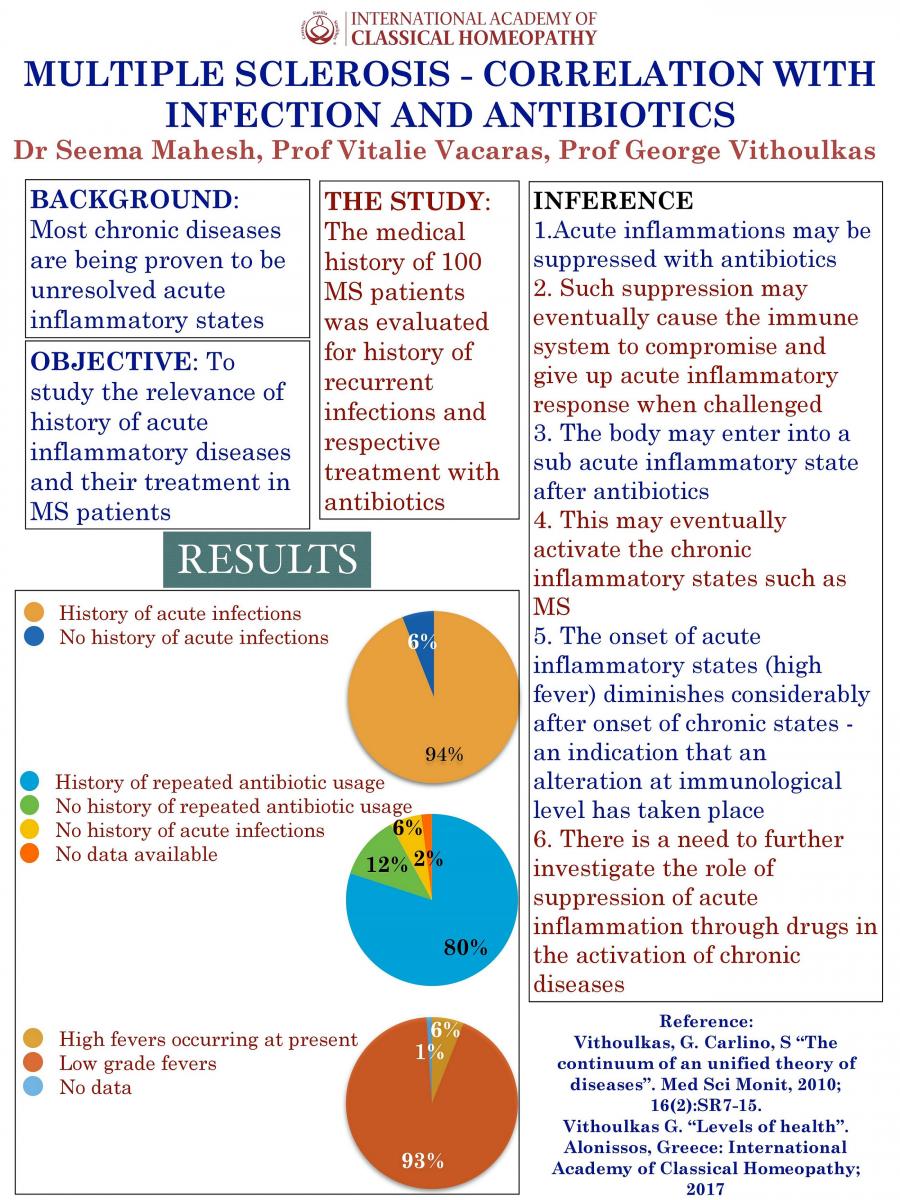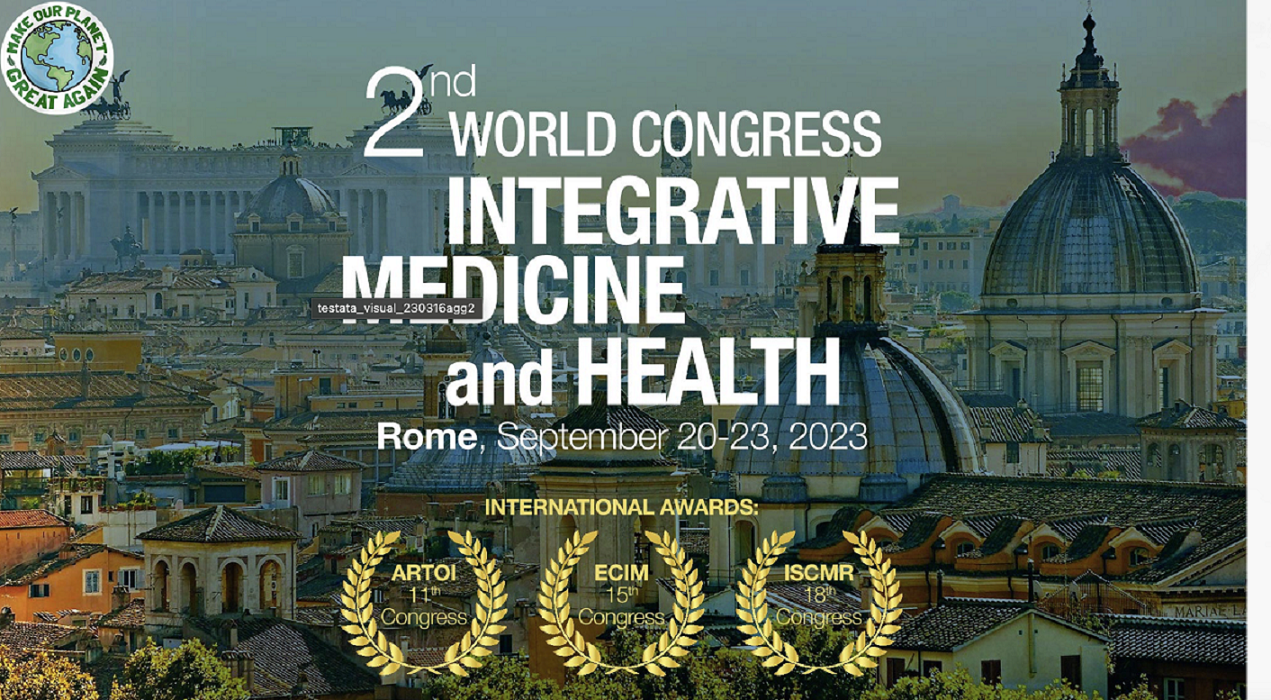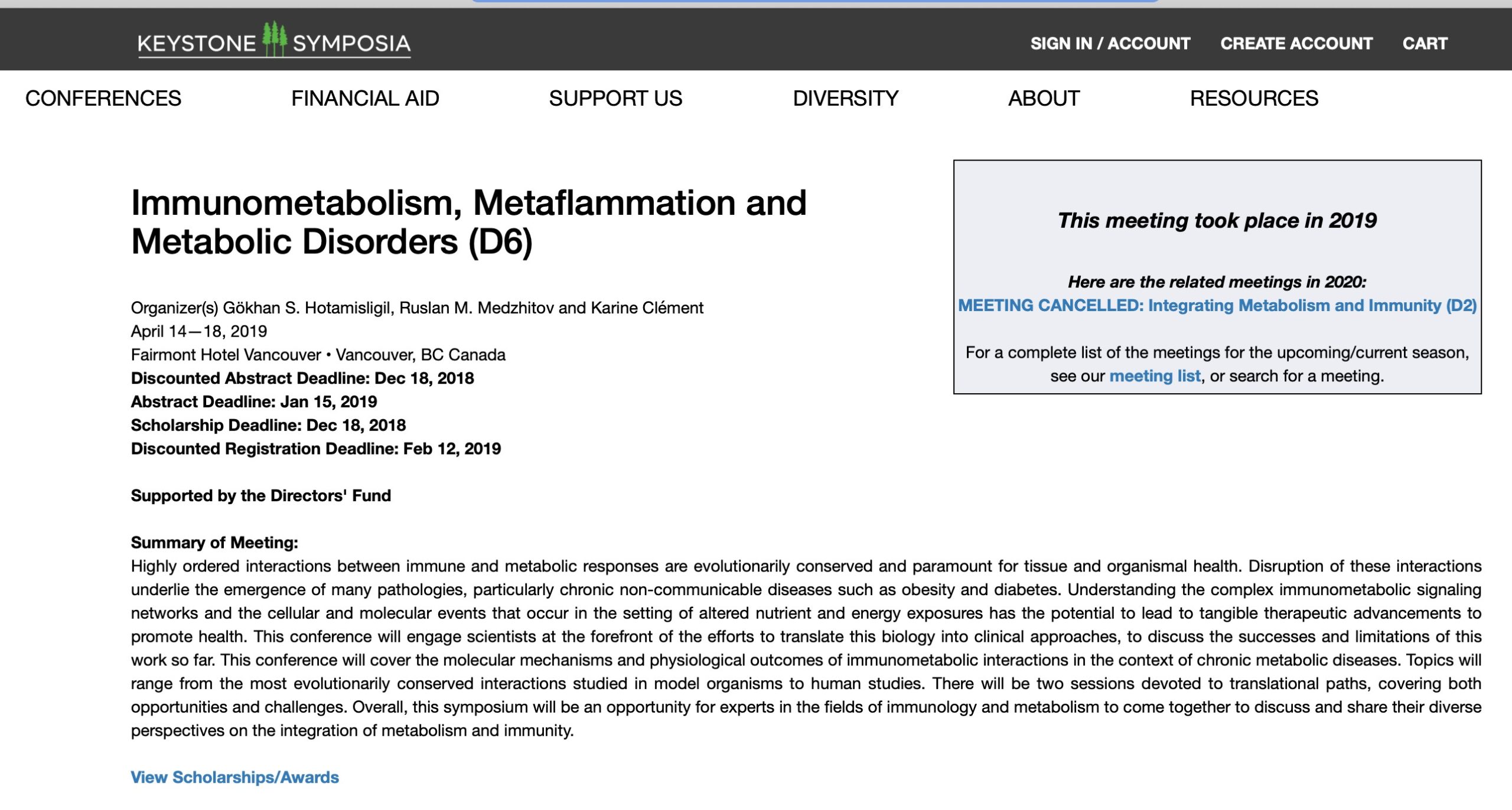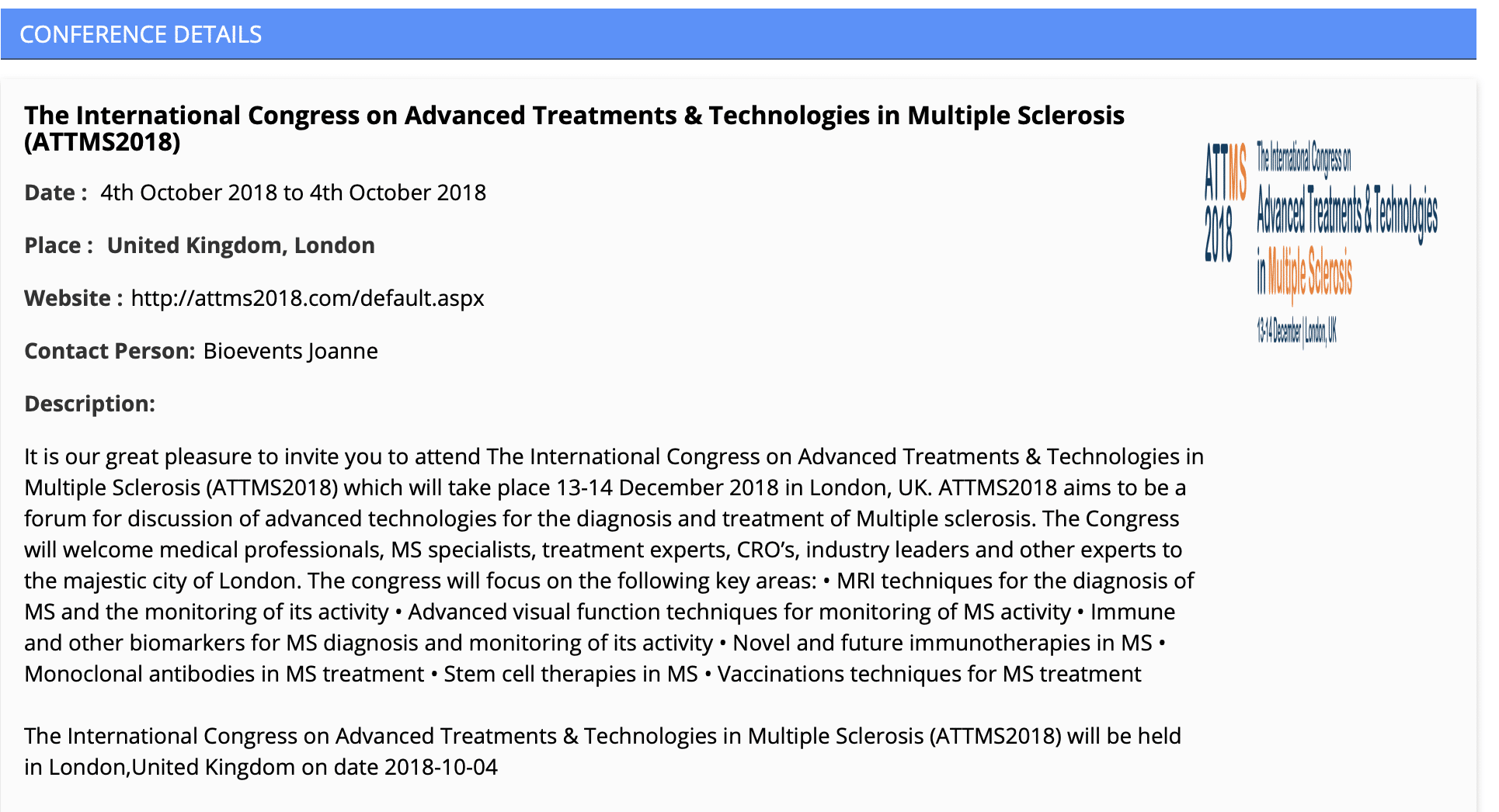Multiple Sclerosis – Correlation with Suppression of Acute Infections By Drugs In the Past – 100 Case studies
Seema Mahesh1, Vitalie Vacaras2, George Vithoulkas3
1 Centre for Classical Homeopathy, Vijayanagar Bangalore,India
2 University of Medicine and Pharmacy, Iuliu Hatieganu, Cluj-Napoca, Romania
3 University of the Aegean, International Academy of Classical homeopathy, Alonissos Greece
Keywords: Multiple sclerosis, suppression of inflammation, antibiotics, continuum of diseases
Background
The indiscriminate use of antibiotics and anti inflammatory drugs during acute inflammation is a result of lack of proper knowledge regarding the actual dangerous fevers and those required for healthy resolution of the infection. The growing number of autoimmune disorders is an indication that this is undermining global health.
The Continuum of a Unified Theory of Diseases states that the immune system, from repeated suppressive treatments loses the ability to mount efficient inflammatory defence and enters a state of constant low grade inflammation (low grade fevers) that eventually triggers the chronic inflammatory process in the body. With studies showing that resolution of inflammation is an active process initiated by inflammation itself, the importance of understanding the effect of suppression of the same is obvious.
Multiple Sclerosis (MS), the leading cause of non traumatic disability in adults is auto inflammatory in nature involving genetic, infective, immunological components. If undue suppression of acute inflammation is proven to be responsible for MS then a change in the primary care practice is indicated.
Objectives
To investigate if MS patients exhibited history of frequent acute infections treated with antibiotics.
Methods
We collected data from 100 consenting MS patients visiting the department of neurosciences, County Emergency Hospital, Cluj-Napoca, Romania, regarding the history of treatment of acute infections in the past
The patients included 77 females and 23 males, ranging from 21 to 61 years’ age with an average age of 39.26. The maximum Expanded Disability Status Scale was 5.5.
Results
Of 100 cases, 80 cases showed history of recurrent acute infections treated with antibiotics; 12 cases showed history of acute infections but without antibiotics and 6 cases had no history of acute infections. 2 cases could not provide the data with certainty.
High fever (40 o C), a sign of good defence in acute inflammatory states, was exhibited by 6 cases; 53 cases showed low grade fevers during their acute infections and 40 cases developed no fevers. One case could not provide data.
Conclusions:
The study provides ample ground to indicate a wider study to investigate the effect of suppressing acute inflammation in the population.
———
Our Research Team, Dr. Seema Mahesh, Prof. Vitalie Vacaras and Prof. George Vithoulkas have presented a poster which has been awarded as the Best Poster (Certificate of Excellence) at the Congress “MOVEMENT AND COGNITION INTERNATIONAL CONFERENCE – Neurological Conference”, which was held at Harvard Medical School.
https://novapublishers.com/shop/movement-2018-brain-body-and-cognition/













